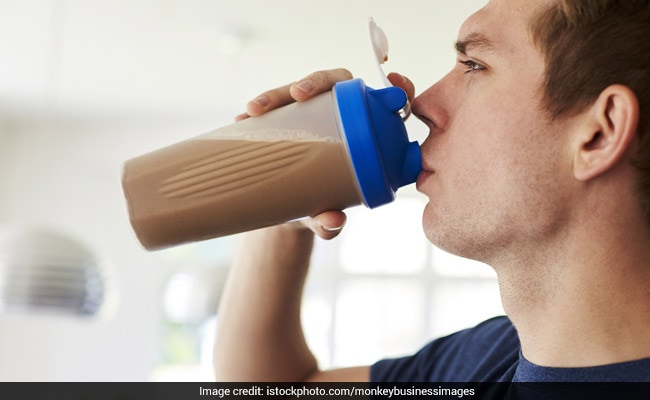Protein powder has become a staple in the diets of many fitness enthusiasts and health-conscious individuals. It’s often used as a convenient and easy way to boost protein intake, build muscle, and aid in weight loss. However, there has been a growing concern about the potential negative effects of consuming protein powder, including kidney damage, gastrointestinal issues, and even cancer.
In this blog post, we’ll take a closer look at whether protein powder is really bad for you, as well as the potential risks and benefits of using it. We’ll delve into the science behind protein powder and explore what nutritionists have to say about this popular supplement.
To provide expert insights, we’ve consulted with a licensed nutritionist who will share their knowledge and experience on the topic. We’ll also examine the various types of protein powder, how to choose the right one for your individual needs, and best practices for incorporating it into your diet.
Whether you’re a fitness enthusiast or simply curious about the potential risks and benefits of using protein powder, this post will provide you with the information you need to make informed decisions about your health and wellness. So let’s dive in and explore the question: Is protein powder bad for you?
- A growing teenager: Their growing body requires additional protein to fuel their activities, as it can efficiently utilize more protein during this period of development.
- Those who start a workout program: Individuals who are new to working out and have a goal of building more muscle require an additional dose of protein during their workout sessions.
- Those who want to amp up their workouts and build muscles: Individuals who train to reach a specific goal or compete in extreme sports such as marathons may need to rely on protein powders to meet their increased protein requirements.
- Those who need to recover from an injury: Especially athletes who need to recover from sports injuries often require more protein to help them heal faster and better.
- Those who follow a vegan diet: People who follow a vegan or vegetarian lifestyle remove multiple protein-rich ingredients from their diet, including meat, chicken, fish, and sometimes dairy and eggs, and need to include protein powders in their diet to help their body get its required daily quantity of protein.

Protein powders come in multiple flavors in the market today.
People who show signs of low protein intake are often exhausted, feel weak when working out or doing other laborious movements, take too long to recover from injuries, and need extra protein they can get from protein powders in their diet. However, they must calculate how much protein powder is required and the best time to give their body the extra shot of protein.
On the other hand, when consuming protein powders such as whey, it is critical to keep an eye on your blood sugar levels. Most protein bars and powders have a high level of sugar content, and it is important to select ones that have low sugar included. There is no conventional right quantity that can benefit everybody, and it is crucial to know how much protein your body needs before you include protein powders in your daily diet. There are multiple options for which protein powder to take, but it is critical to choose one that offers the best DIAAS score. Different protein powders provide a different quantity and quality of amino acids to the body. Keeping the DIAAS score in mind, the best quality is dairy-based protein powder options like milk protein and whey. However, people opt for other options depending on their lifestyle and personal preferences. It is critical to know which works best for you personally.

Protein powders can cause side effects in the body too.
However, those people whose daily routine and diet ensure they get the correct quantity of protein from the food they eat, including protein powder in their diets, can damage their health. Since their body doesn’t need the extra protein, all their body will do is break down the excess protein for energy, and at the same time, overburden the kidneys and liver. Having protein powder when the body does not need it is known to cause severe dehydration, digestive distress, and weight gain, along with a spike in blood sugar levels.
The indispensable truth is that most people do not need protein powder. However, some people improve their lifestyle by including protein powder and its different forms in their daily diet.
For most people, getting protein from their daily diet is easily manageable. But if someone is unable to get enough protein in their diet for some reason, or if they need more protein than the average person because of their strenuous workouts, then a protein powder-based shake might help with that. In the end, it comes down to people’s lifestyles, needs, and preferences.


